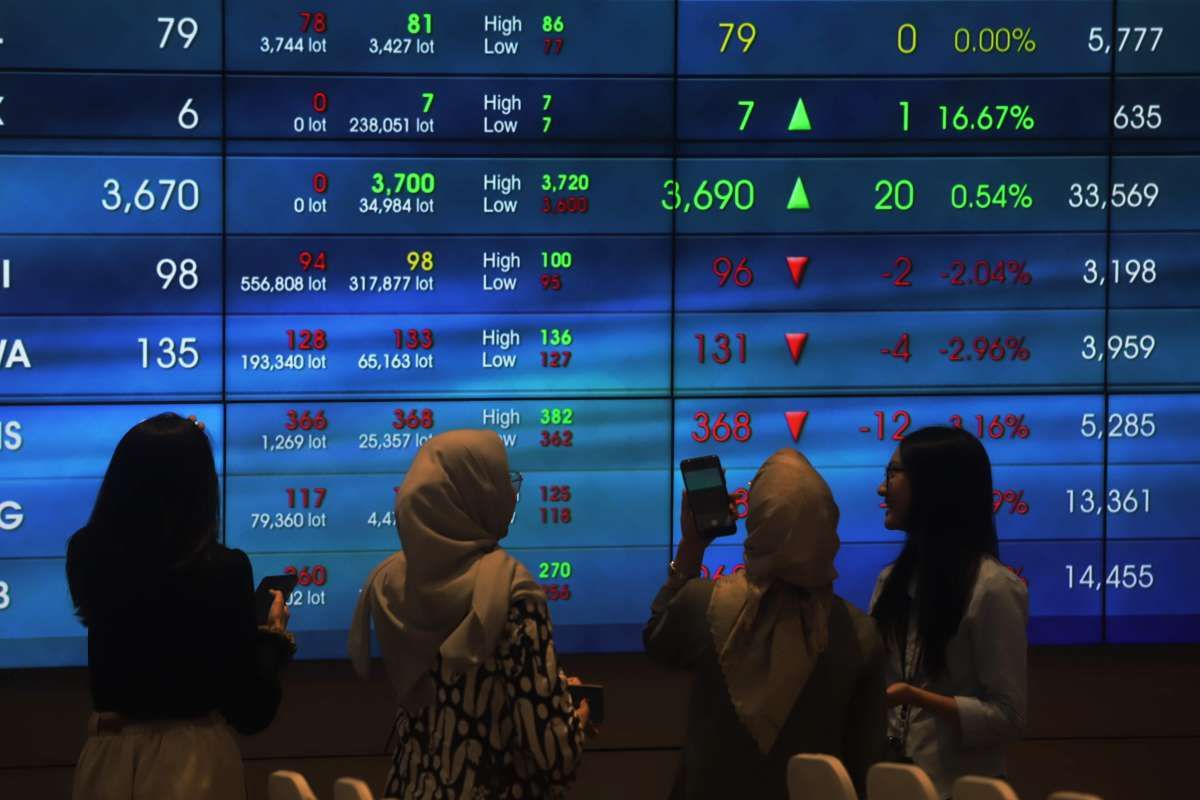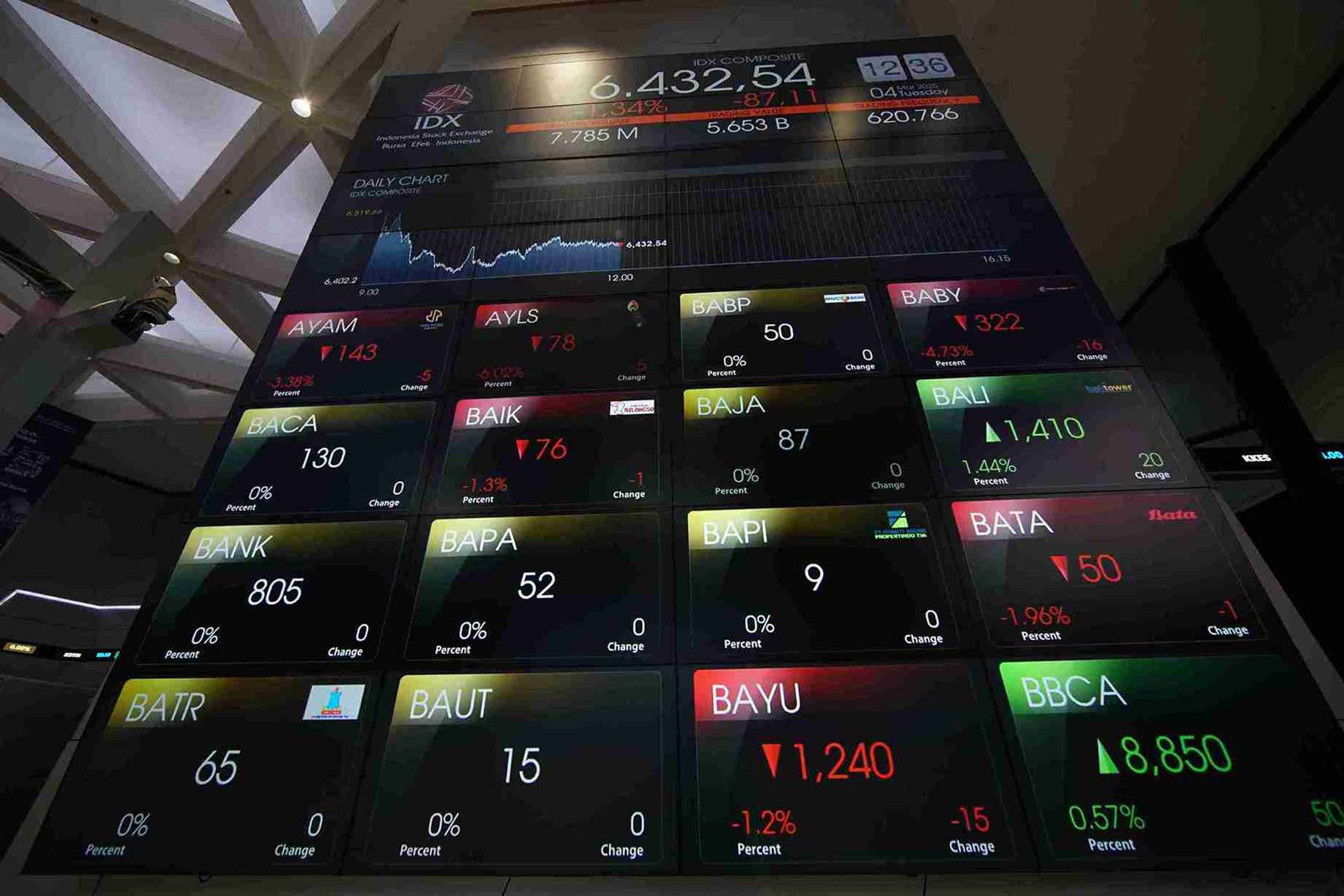At the start of this trading week, the Indonesian stock market remains under pressure due to the persistent outflow of foreign funds. The foreign net sell trend continues to shape market sentiment, affecting both blue-chip and second-tier stocks. Investors need to be cautious while also looking for potential opportunities amid the ongoing volatility.
Foreign Selling Pressure Still Dominates
The Jakarta Composite Index (JCI) has been experiencing significant selling pressure from foreign investors over the past few weeks. This selling spree is influenced by several factors, including global economic uncertainties, the Federal Reserve’s monetary policy outlook, and weakening commodity prices that impact Indonesia’s export-driven economy.
Last week, foreign investors recorded a significant net sell in the banking sector, particularly in stocks such as Bank Central Asia (BBCA), Bank Rakyat Indonesia (BBRI), and Bank Mandiri (BMRI). The consistent outflow suggests that foreign funds are shifting towards safer assets, anticipating a stronger US dollar and rising bond yields.
Key Factors Driving Foreign Net Sell
Several macroeconomic and sectoral factors are driving the net foreign sell trend:
- Global Interest Rate Expectations
The Federal Reserve’s stance on interest rates continues to be a major factor affecting emerging markets, including Indonesia. A higher interest rate environment in the US makes the US dollar more attractive, leading to capital outflows from emerging markets. - Weakening Commodity Prices
Indonesia’s economy is heavily reliant on commodities such as coal, palm oil, and nickel. The recent dip in commodity prices has led to lower earnings expectations for key sector players, prompting foreign investors to reduce their exposure to Indonesian stocks. - Geopolitical Tensions
Ongoing geopolitical concerns, including trade tensions and potential conflicts, create uncertainty in global financial markets. Investors prefer to shift funds to safe-haven assets, reducing their exposure to emerging markets like Indonesia. - Indonesian Rupiah Depreciation
The weakening of the Indonesian Rupiah against the US dollar has also contributed to foreign fund outflows. Currency depreciation can erode returns for foreign investors when converted back to their home currency, making them more likely to exit the market.
Stock Recommendations Amidst Foreign Net Sell Pressure
Despite the foreign outflows, certain stocks remain attractive for long-term investors due to strong fundamentals and growth potential. Here are some stock recommendations for today:
1. PT Telkom Indonesia (TLKM)
- Why Buy? Telkom remains a defensive stock with stable cash flows and strong market dominance in the telecommunications sector. The demand for digital services continues to rise, making TLKM a solid long-term investment.
- Target Price: IDR 4,800
- Support Level: IDR 4,200
- Resistance Level: IDR 5,000
2. Bank Negara Indonesia (BBNI)
- Why Buy? Despite short-term selling pressure, BBNI maintains strong fundamentals, with solid earnings growth and an attractive valuation compared to peers. The banking sector is expected to benefit from the domestic economic recovery.
- Target Price: IDR 11,500
- Support Level: IDR 10,300
- Resistance Level: IDR 12,000
3. Astra International (ASII)
- Why Buy? As a diversified conglomerate, ASII is less vulnerable to sector-specific risks. The automotive segment is showing signs of recovery, and its exposure to commodities provides a hedge against price fluctuations.
- Target Price: IDR 7,200
- Support Level: IDR 6,800
- Resistance Level: IDR 7,500
4. Indofood Sukses Makmur (INDF)
- Why Buy? As a consumer staple company, INDF remains resilient during market downturns. Strong domestic demand and stable revenue streams make this stock a defensive pick.
- Target Price: IDR 8,200
- Support Level: IDR 7,500
- Resistance Level: IDR 8,500
5. Vale Indonesia (INCO)
- Why Buy? Nickel prices may be volatile, but long-term demand remains strong due to its role in electric vehicle (EV) battery production. INCO’s solid production capacity and cost efficiency make it an attractive choice.
- Target Price: IDR 6,300
- Support Level: IDR 5,900
- Resistance Level: IDR 6,700
Risk Management Strategies
Given the current foreign selling pressure, investors should adopt the following risk management strategies:
- Diversification – Avoid concentrating too much capital in one sector or stock. Diversify across different industries to reduce risk exposure.
- Stop-Loss Implementation – Set stop-loss levels to prevent excessive losses in case of further market downturns.
- Gradual Buying Strategy – Instead of making lump-sum purchases, use a phased approach (dollar-cost averaging) to minimize the impact of volatility.
- Monitoring Global and Domestic Trends – Stay updated on macroeconomic data, central bank policies, and geopolitical events to anticipate market movements.
Conclusion
Foreign net sell pressure remains strong at the beginning of this week, driven by global economic uncertainties, weakening commodity prices, and a depreciating Rupiah. However, opportunities still exist in fundamentally strong stocks such as TLKM, BBNI, ASII, INDF, and INCO.
Investors should stay cautious, implement proper risk management, and focus on long-term growth potential. While foreign fund outflows may create short-term market volatility, Indonesia’s underlying economic fundamentals remain strong, making the market attractive for investors with a long-term perspective.




